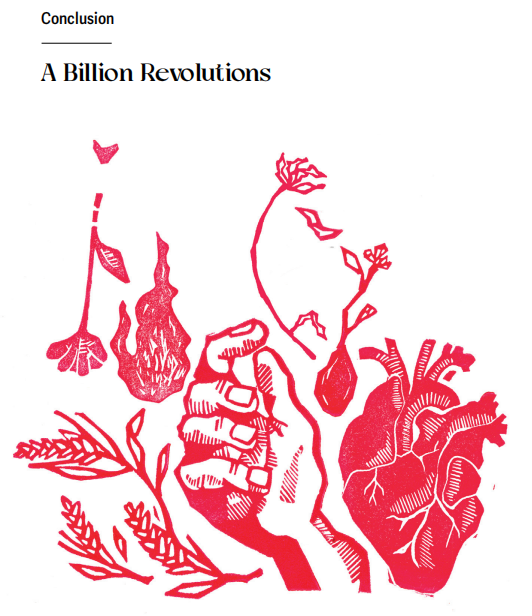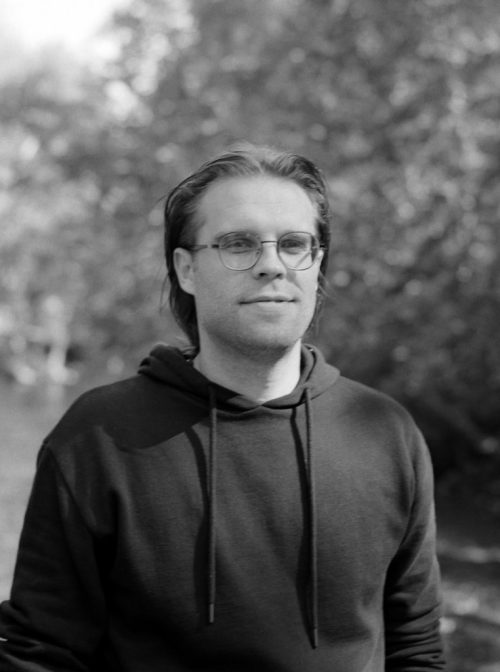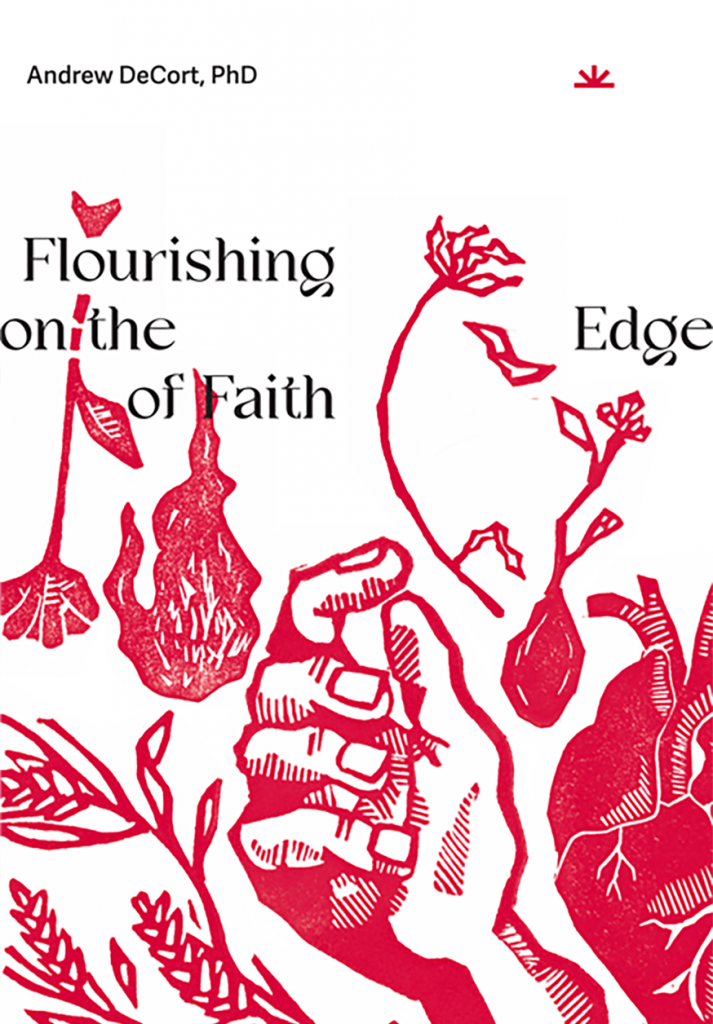With years of study, teaching, and peacemaking around the world, Dr. Andrew DeCort uncovers Jesus’s radical vision for human flourishing in the face of suffering and violence. “Flourishing on the Edge of Faith” invites readers into that vision through a daily practice of praying.
Eboo Patel, Founder and President, Interfaith America, writes that, “This book is subtle and radical… If you open your heart enough, it will introduce you to a new worldview, and maybe even change your world.”
The following is an excerpt is from DeCort’s “Flourishing on the Edge of Faith”.

“The revolution which was begun two thousand years ago by a disreputable Hebrew criminal may now have to be begun again by people equally disreputable and equally improbable.” – James Baldwin
Jesus was beautiful and radical—a massacre survivor, a friend of sinners, the embodiment of flourishing even through execution. Overcoming extraordinary pain and loss, Jesus’ prayerful life launched the most successful revolution in history.
And it can continue with us today, however improbable and disreputable we may be, like Jesus himself.
In the prayer Jesus crafted, he addresses our most crucial questions and invites us to practice a spirituality that reimagines God and human flourishing. Two thousand years in, we’re only beginning to understand its profound implications and who we can become together when we pay attention and pray with Jesus.
Like him, we are acutely familiar with pain, trauma, and anxiety. Our world aches with ecological crisis, increasing poverty, religious extremism, debilitating mental distress, and escalating conflict. New technology and explosive enmity threaten to unleash wars with unprecedented magnitudes of devastation. As individuals and societies, we continue to wrestle with those ancient-yet-existential questions of who we are, how to belong, and whether we have hope.
There is much at stake—for ourselves and our planet, now and for our future. As Curt Thompson reminds us, “Ultimately, we become what we pay attention to … Practice tends to make permanent.”
What questions will claim our attention, and which answers will we practice with our lives?
“This book is subtle and radical. Its stated aim is modest: to introduce you to a practice of prayer. But if you open your heart enough, it will introduce you to a new worldview, and maybe even change your world. Prayer is powerful. Faith is powerful. This book will show you the way.”
—Eboo Patel, Founder and President, Interfaith America
Will we succumb to the false comfort of our entrenched habits and deadly addictions?
Or will we courageously choose to practice flourishing through our distress and the suffering of our world?
Wherever you are on the edge of faith, I invite you to pray with Jesus every day and to participate in a multi-billion-person movement that practices flourishing like this:
We open ourselves to God as our universal Parent. We embrace our divine belovedness and choose to see every other person as a sacred sibling in God’s family, including our enemies. We are we.
We talk about G-d with radical reverence. We disavow religious hubris and cultivate deep humility in the face of holy Mystery.
We orient our dreams and energize our desires with prophetic imagination. We enlist in the kingdom of heaven that cherishes the most vulnerable, chooses mutuality, practices integrated healing, embodies nonviolent witness, and dignifies ordinary work.
We rescale our metric of enough with subversive simplicity. We break our daily bread and retrain our excessive appetites so trust, interdependence, and empathy can set a shared table for all of us, including our Eyobs.
We choose courageous healing. We confront our denial and confess our failures. We ask God to forgive us and forgive others so depolarization prevails and new beginnings of hope are unlocked.
We premeditate nonviolence before violence even begins. We befriend our bodies, acknowledge our vulnerability, process our distress with friends, and refuse to escalate conflict as we trust God to deliver us from evil.
We say Yours and divest our addictions to power and prestige. We embrace the ultimate surrender that takes us back home to our beginning in divine belovedness—and onward into the ever-living destiny of our universal belonging.
This is Jesus’ invitation to all of us. This is his entire spirituality, carved in the beautiful grain of his own prayerful life.
When we practice these seven movements, flourishing is what happens in us and through us—as the unique persons that we are, in our relationships with others, spanning our diverse callings and cultures across our interconnected planet. Our vulnerability and vitality reintegrate. When we miss any of them, we atrophy an essential element of our humanity.
Of course, none of us will do this exactly the same way or get it perfectly right. The goal isn’t imperial uniformity but expansive togetherness. Practicing this prayer with our lives will require us to face our distress and disrupt addictive habits, both as individuals and cultures.
But with patience, courage, and imperfection, our lives and world would undoubtedly flower like never before. Each of our daily decisions to practice with Jesus would amount to a personal revolution, rooted in our local lives but rippling out into the world toward larger transformation.
We dream of this in our most beloved stories, and we witness it in the people who inspire us. In this book, we’ve met Dietrich Bonhoeffer in Germany, David Hartsough in America, Hildegard Goss-Mayr in Poland, Nelson Mandela in South Africa, Dr. Denis Mukwege in Congo, and momma Itash and brother Eyob in Ethiopia. This flourishing is for all of us everywhere.
Today, around two and a half billion Christians claim to follow Jesus as the personal embodiment of God. Around two billion Muslims and Jews recognize Jesus as a holy prophet of God. Countless others are inspired by Jesus as a trusted spiritual guide. Together, these diverse people represent over one out of every two humans on planet Earth today.
I dream of even a small minority of these diverse people invisibly banding together every day to practice Jesus’s prayer for our shared flourishing and so continuing the revolution that Jesus started.
Human dignity would buoyantly rise up, and othering would begin to heal.
Creative imagination would be fueled, and our competitive conflicts would find sustainable solutions.
Our neighbors in pain would be reprioritized, and we would learn to say to one another, “Seeing your face is like seeing the face of God”—every person, a Peniel.
Death would neither be denied nor weaponized. We would learn to face our mortality with honest grief and enduring hope. Amidst the ongoing tensions, tragedies, and aspirations of being human, we would live together with nothing to prove and nothing to lose.
I believe all of this was Jesus’s dream when he designed this prayer and taught it to that wildly diverse crowd of people in the shadow of Rome’s violent empire. This is how we—God’s new we that sees even enemies as family—can build a shared home together in which nothing is lost, all will be well, and love never ends.
We are only just beginning to realize the revolutionary potential of Jesus’s prayer.
So why pray?
To practice flourishing.
From Flourishing on the Edge of Faith: Seven Practices for a New We by Andrew DeCort © 2022. Reprinted in arrangement with BitterSweet Books.
Andrew DeCort is passionate about human flourishing and challenging trends that diminish it. To this end, he founded the Institute for Faith and Flourishing to nurture neighbor-love culture that honors faith and elevates human flourishing, especially for the poor, hated, and forgotten. DeCort is also co-director of the Neighbor-Love Movement birthed in Ethiopia and spanning the globe with thousands of signatories committing to daily practices of nonviolence. He holds a PhD in Religious and Political Ethics from the University of Chicago and has worked as a pastor, professor, and peace practitioner in the United States, Europe, and Africa. DeCort publishes the weekly newsletter Stop & Think and currently lives in Chicago with his wife Lily.





